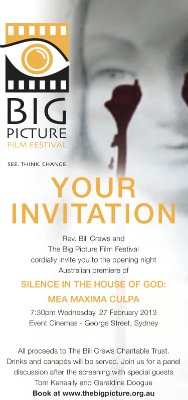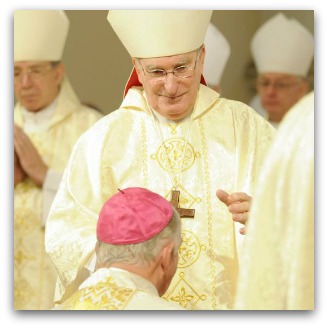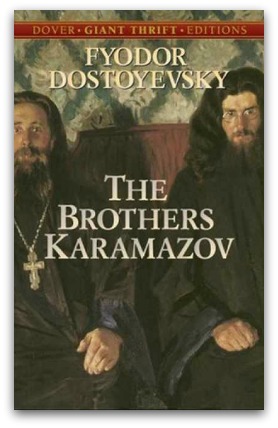Keywords: Rule Of Benedict
-

RELIGION
- Frank Brennan
- 04 September 2013
2 Comments
'The Towards Healing protocol is not a substitute for criminal prosecution of sex abusers. Nor is it a cheap alternative to civil liability for damages. It is a procedure available by choice to victims in addition to criminal prosecution of perpetrators or pursuit of civil damages for negligence by church authorities.' Full text from Frank Brennan's address to the Canon Law Society of Australia and New Zealand 47th Annual Conference, 4 September 2013 at Hotel Grand Chancellor Adelaide on Hindley.
READ MORE
-

RELIGION
- Frank Brennan
- 23 May 2013
2 Comments
Fr Frank Brennan's keynote address at the Archdiocese of Canberra and Goulburn Clergy Assembly, St Clement's, Gaylong, on 22 May 2013
READ MORE
-

RELIGION
- Andrew Hamilton
- 14 March 2013
49 Comments
I indulge a passing self-congratulatory thought that the Pope is, like me, a Jesuit, and will understand our Jesuit ways. And that the Church, of course, will benefit immeasurably from his Jesuit training. That is immediately followed by a touch of anxiety: perhaps he will understand our ways all too well.
READ MORE 
-

RELIGION
- Frank Brennan
- 01 March 2013
37 Comments
There is a temptation to see justice, compassion and transparency as the obsessive concern of western liberals. They are much more universal than that; they are the contemporary, institutional rendition of gospel values. The unaccountable hiddenness of Vatican clericalism has reached its use-by date.
READ MORE 
-

AUSTRALIA
- Michael Mullins
- 18 February 2013
34 Comments
Benedict's resignation makes him look like a radical in the tradition of Christian radicalism. He wrote that after examining his conscience, he concluded that he should resign because he was no longer adequate to exercise the Petrine ministry. This logic has implications for other conventions and rules such as priestly celibacy.
READ MORE 
-

MARGARET DOOLEY AWARD
- Evan Ellis
- 10 January 2013
4 Comments
St Benedict of Nursia knew about living in a dying world. He was born 25 years after the Vandals sacked Rome and died months after the Ostrogoths had their turn. He watched as old certainties went up in flame. As existing institutions were hollowed out or winnowed completely, Benedict started a revolution. Wednesday 12 September
READ MORE 
-

RELIGION
- Frank Brennan
- 23 November 2012
1 Comment
'Might not the chief problem with Church language in the public square be that we tend to come from a position of moral superiority, approaching those dreadfully compromised politicians who will do anything to be elected? The abuse crisis reminds us that the Church is not irreproachable.' Text from Fr Frank Brennan's presentation at the Anglican Church of Australia's Public Affairs Commission Conference, November 2012.
READ MORE
-

RELIGION
- Frank Brennan
- 18 September 2012
'The common law leaves a gap between the mandates of the law and the conduct that we choose to engage in according to our individual moral standards. We call that gap 'freedom'. The challenge is determining the width of that gap for groups bound by religious faith which differs from the Australian majority.' Frank Brennan launches Carolyn Evans' Legal Protection of Religious Freedom in Australia. Full text
READ MORE
-

MARGARET DOOLEY AWARD
- Evan Ellis
- 12 September 2012
12 Comments
St Benedict of Nursia knew about living in a dying world. He was born 25 years after the Vandals sacked Rome and died months after the Ostrogoths had their turn. He watched as old certainties went up in flame. As existing institutions were hollowed out or winnowed completely, Benedict started a revolution.
READ MORE 
-

RELIGION
- Andrew Hamilton
- 19 July 2012
35 Comments
The consecration of Bishop McGuckin in Toowoomba threw into relief the poverty of our public life and the need of symbols of trust. In applauding dismissed Bishop Morris, the people expressed their esteem for a man who was deeply trusted, but also expressed their judgment on what had been done to him.
READ MORE 
-

MEDIA
- Max Atkinson
- 12 July 2012
6 Comments
Any discussion of the morality of torture must distinguish two kinds of justification. The first is concerned with cases so exotic they have nothing to do with the ordinary affairs of mankind, such as the nuclear bomb ticking away in a New York basement. A real-life justification must provide a rationale for a wide range of common garden cases.
READ MORE 
-

RELIGION
- Frank Brennan
- 26 April 2012
4 Comments
'This Jesuit network will not succeed where Copenhagen failed, but it is an incremental contribution to one of the great moral challenges of our age [climate change].' Text from Frank Brennan's paper 'An interpretation and a raincheck on GC 35's call to develop international and interprovincial collaboration', Boston College, 28 April 2012.
READ MORE